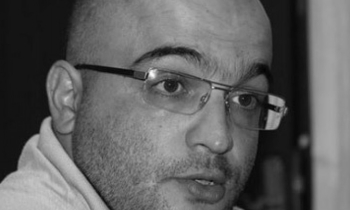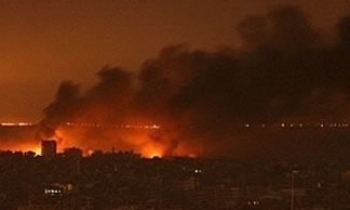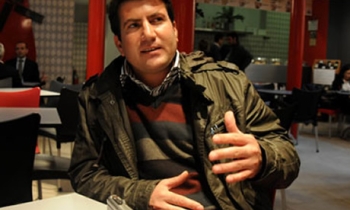The staff at a fledgling weekly newspaper in Yemen accused of damaging national security face death sentences if convicted. The International Federation of Journalists (IFJ) Thursday warned that the recent charges brought against Al-Shar’a (The Street) and a raid on the newspaper’s office signalled a disturbing attack on independent media in the country.
IFJ condemned the Yemeni government for accusing Al-Shar’a of damaging national security and bringing charges against the newspaper in a court normally used to try terrorists. Convictions on these charges could lead to death sentences for the accused journalists.

“It is shocking that the Yemeni authorities are using the criminal court and charges that could bring the death sentence against journalists who have done no more than their normal work,” said IFJ General Secretary Aidan White. “This case has a chilling effect. Media are now fearful that reporting on the government or the military could land them in jail or even lead to the death penalty.”
“We are outraged by the attack on Al-Shar’a and the death threats issued against its editor-in-chief, Nayef Hassan,” Committee to Protect Journalists (CPJ) Executive Director Joel Simon said. “We call on the Yemeni authorities to investigate this incident in light of the serious allegation that the perpetrators were driving military vehicles, and bring those responsible to justice.”
On July 7, the Yemeni Ministry of Defence filed a complaint against Al-Shar’a after the newspaper published a series of articles about the war between Abdel Malik al-Hawthi and the Yemeni army in Sa’da, IFJ reported. The series discussed the volunteer tribesman who fought alongside government forces, as well as corruption and people on both sides of the conflict who would like to see it continue in order to profit from it, Nabeel Subia’, the weekly’s managing editor, told CPJ. He added that the stories also reported that the Aden-Abyan Islamic Army, a terrorist group operating in Yemen, was allegedly fighting alongside the Yemeni army and training volunteers from the tribes to fight in the conflict.
On July 30, ten armed men, who arrived in cars with military markings, raided the office looking for Nayef Hassan, editor-in-chief. He was not in the office at the time but the armed men threatened in front of other members of the newspaper staff to kill him.

In an unusual move, the case was referred to the prosecutor’s office specialising in national security and terrorism cases rather than the press and publication prosecutor’s office. The Ministry of Defence levied several serious accusations under Article 126 of the Yemeni penal code against Subia’, Hassan, and correspondent Mahmoud Taha, including harming national security and stability, affecting the army’s morale, and publishing military secrets, CPJ reported. Subia’ and Hassan have been questioned by the head lawyer in the prosecutor’s office specialising in national security and terrorism cases.
Al-Shar’a, owned by Hassan and Subaie, launched on June 2.
IFJ is backing a protest from the Yemeni Journalists’ Syndicate (YJS). They believe investigating journalists under the country’s penal code sets a very serious precedent that will harm not only the legal standing of colleagues working for Al-Shar’a but will roll back the legal and constitutional foundations of journalism law that were laid down after the unification of the state and destroy all protection for press freedom and freedom of expression.
“We call on the government to respect the rule of law and protect the journalists working for Al-Shar’a,” said Marwan Damaaj, YJS General Secretary. “To show true commitment to press freedom and journalist safety authorities should arrest the men who attacked the newspaper office and bring charges against them.”
IFJ and YJS believe that any complaints against the press should be investigated according to the country’s Media and Publication Law and any journalist charged should be allowed legal defence. “We stand with our colleagues in Yemen and call on the government to respect press freedom and to protect journalists, not persecute them,” White said.









